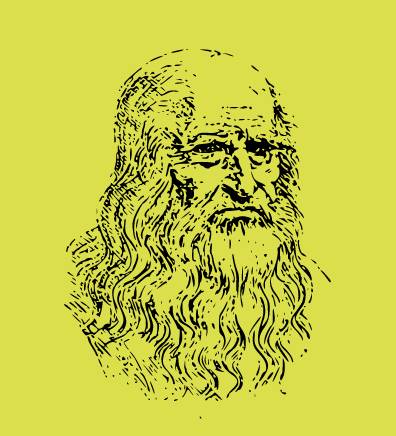4x+(3y+4)i=21+7i – Solve this problem in 1 minute

This has nothing to do with the job you are asking someone to do, but before you can come through the door you must complete it. You have had no training in maths formulas, but you are an amazing artist/designer/copywriter and that’s what you are applying for ( i.e a job that requires no maths skills!)
… an example of how tasks we ask people to do and hurdles to jump… don’t always align with the job. What this means is we are shutting the door to talent all the time.

19% of people of working age are disabled – in one way or another- and barriers to accessing jobs are certainly disabling a considerable number of talented people.
Neurodiversity and Resilience – ‘catch-up’ …. ‘bounce-back…what does this mean for some?
So do you think you have some biases?
Unconscious bias (UB) in recruitment is common during the resume screening phase. This is when we move forward or reject applicants based on how close they are to our picture of the ‘perfect candidate’. But what are we actually measuring in a CV? What talents are getting missed altogether?
(*There has also been criticism over doing UB training. This should never be done in isolation or as a tick box as it can create a defensive stance or even reinforce stereotypes further. It would be quite naive to think that one-off training will have such a powerful impact on changing behaviors.)

We have also recognized the biases when reading CVs relating to age, gender, and ethnicity
There are other biases to consider:
Affinity / Ingroup bias – This may lead recruiters to prioritize candidates who are similar to them or someone they know and enjoy working with. (This often feels easier. We can laugh at the same jokes and feel we have more in common.) This could be reading through a CV and thinking they are different in their likes, hobbies, and experiences.
Confirmation bias – The tendency to focus on information that confirms initial impressions of a candidate. A spelling error confirms to you someone is less capable, rather than they didn’t ‘notice it was wrong (and could be Dyslexic.)
Groupthink – This can occur when members of an interview panel feel pressure to conform to the decision of other panel members. (They may withhold their own opinions so as not to disturb the group consensus especially if there is a power differential.) Perhaps you are rating CVs and others think some candidates are suitable and you don’t want to rock the boat.
Halo effect – this may lead interviewers to focus on salient pieces of information and this may influence the perception of other elements of a candidate’s application. Gaps in employment may be judged as ‘dodgy’ rather than understanding the reasons this may be taking place.
Status quo bias – this can occur when interviewers opt for the ‘safer’ choice of recruiting a candidate that is similar to previously hired candidates, then the riskier option of hiring a candidate with different characteristics and/or background. ( Easier to stick to what you know than …cookie-cutter recruitment)

So why do we still use CVs?
“If you always do what you’ve always done, you’ll always get what you’ve always got.”
― Henry Ford
A CV is a document of privilege- and requires a set of skills that may not match the job that is being applied for.

In 1482, Leonardo Da Vinci was said to write the first CV as he wanted to find work in Milan and wrote a resume of his skills. Thus the CV was born!
CV means Curriculum vitae – Latin loosely translated as [the] course of [my] life.
So what do you want to tell someone about your life in 2 pages!
It seems amazing to me the skills for CV writing may not be anything related to the skill required for the job you are applying for. But we still often use this as a sifter. It comes down to having a single set of processes that are deemed to be the way we always have done this across the board when we are doing volume hires.
If you are really good at CV writing what does it tell me about you as a candidate? Doesn’t it really JUST say you are good at CV ‘writing’? It could also mean you have good literacy skills, good organizational skills to plan the content, or an understanding of the style required for specific jobs. It may say you can spell-check or spot mistakes.
It could mean you have someone in your family who writes a great CV or can guide you. It could also mean you have had training in CV writing.
Or… does it mean you can afford to get someone else to write it for you? It may mean you have read and know about the ‘power’ words for a great CV.
The reality for those without a mentor, parent, or someone to guide them or for those who have to decode what a CV should look like it’s really hard to work! There are definitely specific skills needed for ‘good’ CV writing. Choosing the right words and phrasing, being succinct while showing you have the skills/experience linked to the job. You may also need to know there may be different styles of CVs for a specific sector or job.
It’s a bit like a secret society that you need to have the key to this magical kingdom so you are allowed to pass through to the next stage.
Who gets dismissed at this first hurdle?
How often does an employer dismiss a CV based on crossings out, spelling errors, varying fonts, or poor formatting? I have heard people making comments such as: ” obviously they can’t be bothered to check their content/ I can see they haven’t bothered to proof it at all!” BUT some people may be dyslexic and not notice spelling errors.
What do you think when someone has gaps in their employment? For some people who may be dyslexic, have ADHD or dyspraxia (DCD) their challenges may have impacted their ability to plan, organize, write and be able to format their CV. They may not have had the money to be able to do work experience and had to take any job that came along to pay the bills!
For some people, such as those with communication challenges or who may be on the autistic spectrum it may be harder reading into the meanings of a job description in order to write their CV. Terms like ‘ninja warrior’ or ‘flexible’ can be misunderstood.
I love the cartoon from Dilbert talking about quality assurance – and shows the man saying ‘I am good at assuring people that we have quality!’
Someone else may read the JD saying requiring a “minimum 2-3 years of experience” so doesn’t apply even though in reality the organization may not reject a candidate with one year of experience if that experience is impressive.
How do you approach a pile of CVs?
Do you flick through them and dismiss some because of the look, the layout, the use of color? How often are they misjudged, and their application turned away as a consequence of this. You may be saying to yourself: ‘but why don’t they tell me they are XX?” Some people may be concerned about ‘disclosing’ challenges because this has negatively impacted gaining employment in the past. A double whammy!
A tick box on a form asking you if you are disabled or not may not describe what you can do. You may not see yourself as disabled but require some support. Remember also that the person applying may not know they are dyslexic. The application you dismissed (with crossings out) may in fact have taken the person many hours to complete. What you also don’t see is the endless worry and disappointment with rejection despite having the skills.
So what talent could you be missing?
As an employer, you may be missing the best talent for the actual job.
If the person is going to be a journalist or a proof writer then this is totally different because you would expect a well-formatted CV that has sentences appropriately written. However, if this is a job that doesn’t require high levels of literacy why, why, why are we still using the CV as a form of application to measure a set of skills( when it doesn’t do so). It seems a very crude measure that could be misconstrued.
What is the alternative to a CV?
- This starts with a really good job description that doesn’t have superfluous skills that are not really required and a format for the application that allows people to demonstrate the skills that are being asked for.
- Set format for applications with a structure – which looks the same for all and accessible and allows for grammar and spell checking in it.
- Alternative CVs – e.g. video CVs
- Telephone application completion as an alternative
- Passporting – building a skills portfolio you can share with others that have been checked
- Naturally Talented Me is one organization that is taking a new approach to resolving the current failures of the standard CV application approach by focusing on what are the core attributes and drivers of an individual’s potential and personality – Talent. They have an online platform that enables job seekers struggling to be found via traditional recruitment processes the chance to stand out and demonstrate their value.
As some of you will know. I’ve recently written a book ( soon to come out) with Theo Smith ‘Neurodiversity at Work’. Theo is the VP of Customer Acquisition at Zinc.
Zinc has automated the background checking and referencing process. They have also flipped the narrative on references to help organizations focus on a candidate’s positive skills and how organizations can give them a great onboarding experience based on referee feedback. Hopefully, this is another way that it will give candidates a better experience when joining an organization and managers the opportunity to hear how to get the best out of their new employees from past colleagues and managers.
I am CEO of Do-IT Profiler, a tech-for-good company. We have developed web-based tools to aid people to showcase their talent and help them prepare for the workplace too and help if there are support needs. DM me if you want to know more. We love working in collaboration with other companies, to make a difference.
Napomena o autorskim pravima: Dozvoljeno preuzimanje sadržaja isključivo uz navođenje linka prema stranici našeg portala sa koje je sadržaj preuzet. Stavovi izraženi u ovom tekstu autorovi su i ne odražavaju nužno uredničku politiku The Balkantimes Press.
Copyright Notice: It is allowed to download the content only by providing a link to the page of our portal from which the content was downloaded. The views expressed in this text are those of the authors and do not necessarily reflect the editorial policies of The Balkantimes Press.
